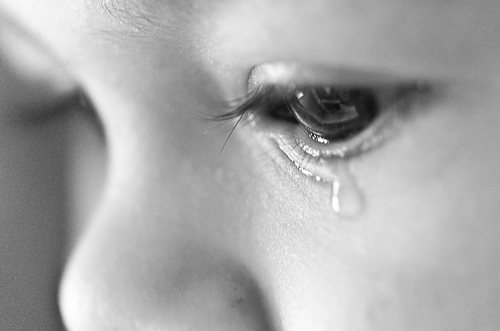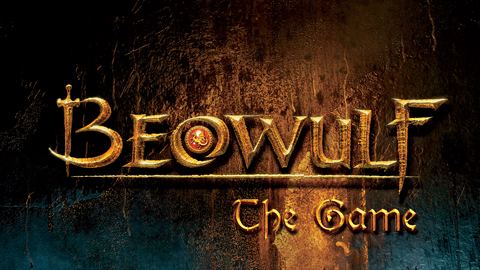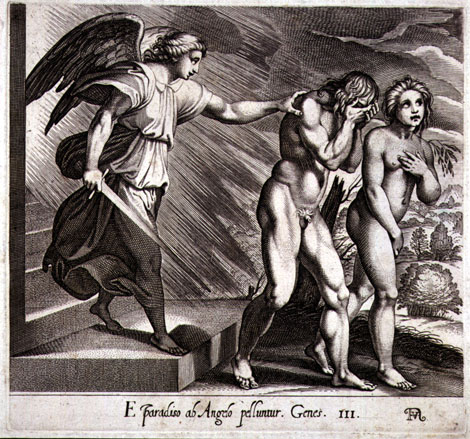The poem “My Father’s Sadness” by Shirley Geok-lin Lim is a very short poem packed full of figurative meaning. The author uses the culture and upbringing of a man, whom she places in the form of her father, to create a character who is so laden with the responsibilities of life that he is dying, both figuratively and literally. Geok-lin Lim is a poet who has written many stories and poems, and was the first Asian and the first woman to win the Commonwealth Poetry Prize. She uses her talent in poetry to write a poem that, precisely through its conciseness, shows a picture of a man evocative of any person that life has beaten down.
The first stanza of this brief poem introduces us to the child writer, who is dreaming about her father and his sadness, which must be so immeasurably heavy that it permeates into her dreams. Geok-lin uses the line “His young body is dying of responsibility” to show the literal meaning that she understands her father is dying – a slow, painful death, drawn out to the degree that it is noticeable by her, as well as the figurative meaning that it is the responsibilities that are overwhelming him and taking away his youth. His responsibilities rob him of his ability to have fun in life and make him feel older, aging him visibly as well.
This sentence brings to the reader’s mind the people around them that they can liken this to, or their own life burdened down with the daily intricacies of everyday life that they never imagined as a child they’d one day face, and the differences from their childhood dreams to the actual reality of adulthood. The feeling of nostalgia and a longing for better days begins with this second line, and continues as a theme throughout the poem.
Continuing on in this vein, the author uses the metaphor “So many men and women march out of his mouth each time he opens his heart for fullness, he is shot down; so many men and women like dragons’ teeth rising in the instance of his lifetime.” This allusion to a dragon begins to pull out the Oriental aspect of the poet’s culture and evokes a violent feel to the idea of these men and women he thinks about or talks about, has responsibilities for. It gives the image that whoever he is making himself responsible for do not give him the respect back, and, like dragons’ teeth pulling at him, they are helping to drag his youth away. However, it also alludes to a Greek myth, where when the teeth of a dragon are planted, they grow into warriors. The reader can empathize with the feeling of lack of respect for their hard work, and consider the many people in their life that seem to suck away at their life force, leaving negative energy in their wake, and the feeling of nostalgia continues, the craving for a time before the responsibility of being an adult.
This feeling begins to take on a new direction with the next lines. “He is an oriental. He claims paternity. But in his dreams he is a young body with only his life before him.” Here, the poet begins to insert the idea that all of these responsibilities that are dragging her father down lay within his children. “He claims paternity…” -he claims to be a father, but he dreams of a time before children, when he had only himself to look out for. This brings a whole new level of meaning to the prior lines, and the reader suddenly understands that what is taking the father away from his hopes and dreams and vitality is his very own children. Instead of becoming disillusioned and disgusted, however, the feeling that the author has instilled in us, as the reader, of nostalgia and sadness helps us to look past the initial, exterior vision of, “How dare he wish for a time without his children?” and realize that everything she said, though harsh, was true. In a world where you are responsible for your children, that responsibility ages you greatly, and many people long for a time that they were the ones taken care of, rather than the caretakers.
The second stanza shows how the child sympathizes with her father. She is compassionate towards him. “My father’s sadness masks my face. It is hard to see through his tears, his desires drum in my chest.” These lines show how she is taking on the responsibility of understanding him and why he is the way he is. Then continuing with, “I tense like a young man with a full moon and no woman in sight,” she acknowledges how she can relate to him and understand what he is feeling.
Using the metaphor “My father broke with each child, finer and finer, the clay of his body crumbling to a drizzle of silicone in the hour-glass. How hard it is to be a father, a bull under the axle, the mangrove netted by lianas, the host perishing of its lavishness,” she brings to a close, in a fashion, her father’s life. The metaphor of his body as clay is synonymous with the very origins of the body with God creating life from dirt. Geok-lin Lim uses this clay analogy to help the reader visualize the father’s body as the creation of life in reverse, with the full, robust and healthy piece of clay in a molding shaped as her father before he had children, and then, with each child and the responsibilities ensuing from them, slowly deteriorating into fine shards and crumbling and crumbling until finally, nothing but the molding remains.
Shirley Geok-lin Lim is able to take the sensitive subject of a parent’s resentment of their child and tackle it in a manner that leaves the reader empathizing with, and even agreeing with, this feeling. Using the child’s perspective to address this subject ensures that the person being described can be related to any person who has faced the adversities of life and still struggles through.
Some online learning platforms provide certifications, while others are designed to simply grow your skills in your personal and professional life. Including Masterclass and Coursera, here are our recommendations for the best online learning platforms you can sign up for today.
The 7 Best Online Learning Platforms of 2022
- Best Overall: Coursera
- Best for Niche Topics: Udemy
- Best for Creative Fields: Skillshare
- Best for Celebrity Lessons: MasterClass
- Best for STEM: EdX
- Best for Career Building: Udacity
- Best for Data Learning: Pluralsight
















